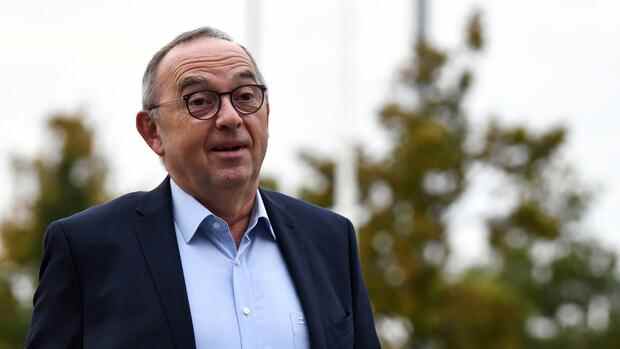Berlin Just a few months ago, SPD Chancellor candidate Olaf Scholz spoke out in favor of his former rivals Saskia Esken and Norbert Walter-Borjans remaining party leaders after the federal election. “Yes, I think that’s very good,” he said at the time. Now it turns out differently.
According to SPD circles, Chancellor candidate Olaf Scholz has no ambitions for the post. Both “Rheinische Post” as well as “Stuttgarter Zeitung” and “Stuttgarter Nachrichten” reported on it on Friday. He made a commitment even before the general election. When asked whether he would aim for party leadership in the event of an election victory, he said on Deutschlandfunk in August. “No, I don’t think that’s necessary, nor do I intend to”.
Together with Esken, Walter-Borjans has been leading the party since December 2019. Before that, both had prevailed in a membership decision as critics of the grand coalition – against Scholz and his co-candidate Klara Geywitz.
Top jobs of the day
Find the best jobs now and
be notified by email.
With Walter-Borjans and Esken at the top, the SPD was able to free itself from its long-term polls in the Bundestag election year. This is remarkable insofar as in the twelve years in which the Social Democrats co-ruled alongside Angela Merkel, the party’s core brand seemed to have melted away. After its 20.5 percent debacle in the 2017 federal election, the SPD barely came out above 15 percent in polls for three years.
Separation of party leadership and government offices
Even earlier this year, things weren’t looking particularly good for the party. Hardly anyone gave the SPD and Scholz a real chance of success in the federal election – until the polls suddenly went up in August.
One explanation for this could be that the political competition, Armin Laschet (CDU) and Annalena Baerbock (Greens), made mistakes – and Scholz did not. On the other hand, the SPD appeared more united than ever. “We have the unity, that is the decisive factor that has made us strong,” said Walter Borjans on the evening after the general election.
The candidate for chancellor has refused the post of SPD leader.
(Photo: dpa)
Keeping the party closed is also credited internally to Walter-Borjans as a great merit. “With his calm, his experience and his affection, the party was able to become a very closed formation,” said SPD parliamentary group leader Rolf Mützenich. “He did the SPD very well.”
It is still unclear how the SPD will position itself at the top in the future. If Walter-Borjans has his way, then the future party leadership does not belong to the new federal government. “A member of the government as a party leader is necessarily always a piece of government spokesman,” he said. The previous division of labor – party chairmanship on the one hand and government office on the other – has proven its worth. That would mean Esken, who was already traded for a ministerial office, could not join the cabinet.
Stegner also advocates separating party and government offices in the future. Together with Gesine Schwan, with whom he had applied for the SPD chairmanship two years ago, “voted for the party leadership to support its own federal government in solidarity, but not to belong to it,” Stegner told the Handelsblatt. He still thinks that’s right. “It strengthens the orientation function of the social democratic party leadership that is necessary over the long term.”
Klingbeil as a possible successor?
Lars Klingbeil’s name has been around for a long time. The SPD general secretary and election campaign manager is also traded for a ministerial office – for example for the defense or interior department. But many also trust him to lead the party, probably also because the SPD managed to win the election with its campaign. Klingbeil is also internally praised for keeping the SPD leaders together in turbulent times.
In his almost four years as general secretary, he served no fewer than eight SPD chairmen. But Klingbeil can also score points with the voters. With 47.6 percent, Klingbeil got the second best first vote result of all SPD candidates in his constituency.
It is still open whether the digital expert Esken will run again. All that has been handed down to us so far is her wish, expressed a few months ago, to keep the party chairmanship. “For me, I can say that I still have an agenda ahead of me,” she told the “Rheinische Post”.
The future political agenda of the SPD is currently also being determined in the negotiations on a traffic light coalition with the FDP and the Greens. “In the coming weeks we will do everything in the coalition negotiations to create a good basis for the federal government for the next four years,” said parliamentary group leader Mützenich. And with a view to Walter-Borjans’ role in the traffic light talks, he added that, of course, he would “play a decisive role and set many important priorities for the future with his expertise”.
With agency material
More: Follow the current developments after the federal election in our news blog.
